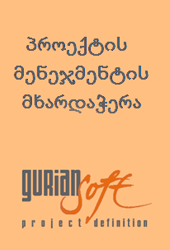Kurds in Georgia
 Personal name of the Kurds is the Kurd, Kurmanji. Kurds are one of the ancient ethnic of former Asia. They live mainly in Iran, Turkey, Syria, Iraq (on the territory of Kurdistan), Lebanon, Afghanistan, Armenia, Azerbaijan, Georgia, Kazakhstan and Turkmenistan. According to the data of 1978, Kurds consisted of 10,280 thousand persons. 116 thousand from this lived in the former Soviet Union and 26 thousand in Georgia. Their language is the Kurdish that belongs to the western branch of the Iranian language and has two main dialects: Kurmanji (north-western) and Sorani (south-eastern). Kurds mainly are Sunni Muslims, small amount Shiite, Yezide, Ali-ilahs and other.
Personal name of the Kurds is the Kurd, Kurmanji. Kurds are one of the ancient ethnic of former Asia. They live mainly in Iran, Turkey, Syria, Iraq (on the territory of Kurdistan), Lebanon, Afghanistan, Armenia, Azerbaijan, Georgia, Kazakhstan and Turkmenistan. According to the data of 1978, Kurds consisted of 10,280 thousand persons. 116 thousand from this lived in the former Soviet Union and 26 thousand in Georgia. Their language is the Kurdish that belongs to the western branch of the Iranian language and has two main dialects: Kurmanji (north-western) and Sorani (south-eastern). Kurds mainly are Sunni Muslims, small amount Shiite, Yezide, Ali-ilahs and other.
Kurdistan was divided between Turkey and Iran in 1514 and among 4 states (Turkey, Iran, Iraq and Syria) after the First World War (1914-1918). This division caused for Kurd nation to be in the position of oppressed minority. Part of Kurds got the citizenship of Russia in XIX century.
Separate Kurdish nomadic tribes appeared in Georgia, namely in Mtskheta in XVI century. Delegations of the Ezidi Kurds were arriving in Tbilisi along with strengthening and unification of Qartl-Kakheti kingdom from the sixties of XVIII century, they hoped for the support of Erekle the second during liberation movement in Turkey.
Kurds appeared in Tbilisi in the second half of XIX century. One Kurd, as the resident of Tbilisi, is registered in 1876 at first, 3 Kurds in 1886 and 464 in 1899.
Generally, the main mass of the Kurds was settled in Georgia in 1918-1920 after the Turks had oppressed them in a political and religious way. The Kurds exiled from Vani and Karsi.
The number of Kurds equaled to 10,217 persons in the twenties of XX century. Confession of the new Yezides appeared along with the apparition of Kurds in Tbilisi. The confession included 1,5 thousand persons in above mentioned years. According to the census of 1926, there lived 458 Kurds in Tbilisi, from them 258 males and 200 females. By the same census, there were 2,044 Yezides in Tbilisi, from them 1,157 males and 887 females.
In the same period, 22 Kurds lived in Abkhazia, 3,295 in Achara and in so called "South Ossetia".
Sufficiently large amount of Kurds tried to enter Caucasus from Turkey in 1926. Because of the lack of the residential territory, authority considered that it was impossible to receive the tribe of Kurds - Bruki during the nearest years. Although, refugee Kurds from Turkey got the right in the November of the same year to settle on the territory of Caucasus, 100 thousand rubles were assigned for this purpose.
400 Kurdish families arrived in the territory of Azerbaijan from Iraq in the mentioned period. It was necessary to assign 700 rubles for each family.

Earlier, 12 families of Yezides, living in the village Surmali, in the province of Yerevan (they lived in Kakheti in the twenties of XX century), demanded to be settled in the village Kazimiri of the province of Yerevan in the February of 1926. They were mentioning that there lived nobody on the plot of the named village that was called Talini and it was vacant. Families of Yezides consisted of 69 persons. They had 13 bulls, 18 cows, 112 sheep and 2 horses. Were they satisfied or not, it is not shown in the documents.
By the data of 1930, Kurds and Yezides are already mentioned separately. A large number of Kurds live in Tbilisi, small in the villages, mainly in Kakheti. According to the religious belonging, Kurds of Georgia are Yezides. By their conviction, Yezidism is the expression of the national identity.
Kurds live compactly in Tbilisi, by districts, on the continuation of Kharphukhi-in Orthachala, along Greek`s district and also in a scattered manner- in the various towns of Georgia.
After this we have the census of 1959, according which the total of Kurdish population in Georgia was 16,2 thousand; According to the census of 1970 in Georgia were living 20,7 Kurds; in 1989 - 33,3.
According to the census of 2002 in Georgia, 18,329 Kurds lived in the country and 17,116 of them resided in Tbilisi.
Sources:
- A. Songhulashvili, Essays on contemporary history of Georgia, Tbilisi 2001, pp. 101-103;
- V. Jaoshvili, Georgia`s population, Tbilisi 1996, p. 290;
- Principal results of census of the Georgian population, Tbilisi 2002, vs. I-II.






